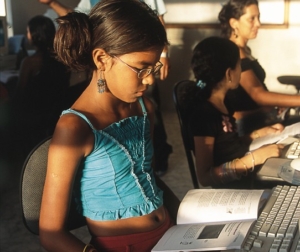5 Charities Operating in Brazil
 Brazil, the largest nation in South America, boasts a population of more than 200 million and a GDP of more than $2 trillion. However, despite such a promising economy, it remains an extremely unequal nation in terms of income, with Oxfam citing that the richest 5% of the country have as much income as the remaining 95%. Factors such as lack of access to housing or education have only served to widen the gap between rich and poor. Poverty disproportionately affects women, Afro-Brazilians and Indigenous communities due to wage inequality. Here are five charities operating in Brazil that work to combat the various social problems facing the country.
Brazil, the largest nation in South America, boasts a population of more than 200 million and a GDP of more than $2 trillion. However, despite such a promising economy, it remains an extremely unequal nation in terms of income, with Oxfam citing that the richest 5% of the country have as much income as the remaining 95%. Factors such as lack of access to housing or education have only served to widen the gap between rich and poor. Poverty disproportionately affects women, Afro-Brazilians and Indigenous communities due to wage inequality. Here are five charities operating in Brazil that work to combat the various social problems facing the country.
The Lemann Foundation
Limited access to education is a problem that affects a significant proportion of Brazil’s population; 48% of the nation’s children reach age 10 without ability to read, whilst total illiteracy rates reach as high as 80% in the most deprived areas. The Lemann Foundation combats “learning poverty” by working to ensure children and young people in Brazil have access to high-quality education. It collaborates with more than 15,000 schools, provides teachers and local governments with relevant resources and helps produce online learning material to ensure those in deprived areas are still able to achieve strong academic qualifications. The Lemann Foundation also notes the particular educational exclusion of Indigenous and Afro-Brazilian communities and stresses the importance of quality education in building a progressive and equal society.
The Catholic Agency for Overseas Development (CAFOD)
Founded in 1960 as the official aid department of the English and Welsh Catholic Church, CAFOD’s work in Brazil focuses on providing aid to those dealing with homelessness in São Paulo, the country’s most populous city. With an estimated homeless population of up to 50,000 in 2023, the number of residents sleeping rough has increased by 31% since the COVID-19 pandemic.
The CAFOD combats this by supporting those living in unsanitary housing conditions by ensuring they have access to clean water and basic health care. It also recognises the disproportionate impact poverty has on Indigenous groups in Brazil, so works to ensure these groups have access to education and employment opportunities.
The Favela Foundation
Favelas are slums or impoverished areas often located on the outskirts of Brazil’s larger cities. The Favela Foundation is one of the charities operating in Brazil that focuses its support on the residents of these neighborhoods. The organization raises money for local NGOs that provide educational opportunities such as English lessons, as speaking English can often ensure access to better employment.
Revive International
Founded in 2012, Revive is one of the charities operating in Brazil that works in the North East of the country, focusing on supporting children who have been victims of abuse or trafficking. As poverty and homelessness put young people more at risk of exploitation, Reviva runs safe houses for those in unsafe domestic conditions, alongside a fostering service for younger children to ensure they receive a safe upbringing.
ActionAid
This U.K.-based charity has been working in Brazil for more than 25 years and supports a wide range of communities and initiatives across the country. The organization’s principal goal is the support and protect young girls from exploitation, for example through organizing educational services or sports activities. However, ActionAid also assists those facing other issues, such as providing resources to rural Brazilians in drought-stricken areas to ensure they can still grow food. In total, it has worked with over 300,000 people to help improve lives in the country.
Although the country faces disproportionately high levels of poverty and inequality, these charities operating in Brazil are working to improve the lives of its impoverished citizens. Both local and wide-ranging international organizations provide support within the country to support those dealing with a vast variety of issues such as homelessness, learning poverty, gender-based violence and environmental changes.
– Izzy Tompkins
Izzy is based in Leeds, UK and focuses on Global Health and Politics for The Borgen Project.
Photo: Flickr
